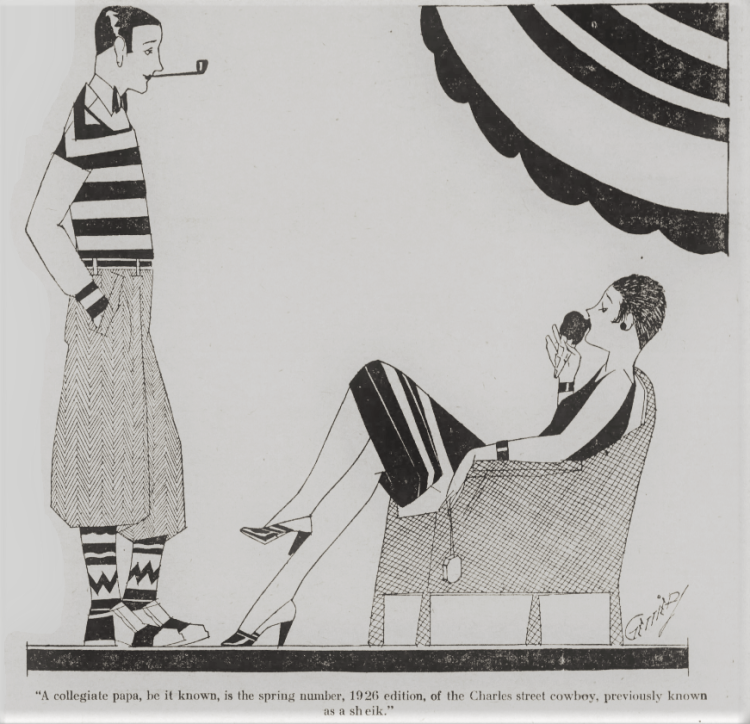The American-English phrase it’s baloney (or boloney), no matter how thin you slice it and its variants mean it’s utter nonsense, no matter how hard you try to prove the opposite.—Cf. also ‘globaloney’: meaning and origin.
For example, in her column Over the Back Fence, published in the Nutley Sun (Nutley, New Jersey) of Thursday 6th February 2014, Victoria Chalk recalled her driving instructor, the late John Ball:
He was a tough instructor, who accepted no excuses about why we did something wrong. His response was, “Baloney’s baloney, no matter how thin you slice it.”
This phrase illustrates the fact that baloney (or boloney), meaning nonsense, was derived from bologna, denoting a large smoked sausage made of seasoned mixed meats—cf. origin of ‘baloney’.
Interestingly, no matter how thin you slice it and variants occasionally appeared in food advertisements. For example, the following is from an advertisement for Sunshine Meat Products, published in The Washington Times (Washington, District of Columbia) of Friday 23rd July 1915:
They are prepared by a special process which makes them juicily, sweetly tender, no matter how thin you slice them.
Another example; published in The North Adams Evening Transcript (North Adams, Massachusetts) of Tuesday 4th December 1923, an advertisement for Betty Brown Bread, manufactured by Hammond’s Bakery, Adams, Massachusetts, contained:
Skilfully kneaded and baked, it will not crumble no matter how thin you may slice it.
The earliest occurrence of the phrase that I have found is from The Sun (Baltimore, Maryland) of Sunday 9th May 1926 [the footnote explains the meaning of collegiate papa]:
“No Matter How Thin You Slice It”
Gab Of Collegiate Papas And Self-Starting Flappers Is Always “Bolognie” Anyhow And In Sort Of Code
By Katherine Scarborough.“No matter how thin you slice it.”
Which, as every flapper knows, is merely bologna (pronounced “bolognie”) served in the grand manner.
It is the subtle, trenchant and convincing expression which the young person with one earring uses to inform her collegiate papa that his best line is sound and fury, signifying nothing.
For “bolognie” is to the slang of the moment what applesauce was to the vocabularies of yesteryear. It is an indication that the speaker knows her book, is thoroughly hardboiled and will stand for no misunderstandings whatever on that score.
[…]
“No matter how thin you slice it” probably would discourage the conversational advances of a really sensitive person. But not so a collegiate papa. It serves merely to stimulate him to the employment of counter-irritants and his comeback is as inevitable as the color of his necktie.
This is the illustration for “No Matter How Thin You Slice It”, by Katherine Scarborough, published in The Sun (Baltimore, Maryland) of Sunday 9th May 1926:
“A collegiate papa, be it known, is the spring number, 1926 edition, of the Charles street cowboy, previously known as a sheikh.”
The second-earliest occurrence of the phrase that I have found is from Doyle Picks Champ to Win from Gene by Early Knockout, by James E. Doyle, published in the Cleveland Plain Dealer (Cleveland, Ohio) of Sunday 19th September 1926; this article was about the forthcoming boxing match—promoted by Tex Rickard (1870-1929)—between Jack Dempsey (1895-1983) and Gene Tunney (1897-1978), at Sesquicentennial Stadium, in Philadelphia:
Mr. Rickard, even as the late Mr. Barnum, must take care of his public. Bigger and better than ever is the bally-hoo and resulting attendance at each heavyweight championship spectacle. If Mr. Rickard hadn’t “built up” Tunney, he’d have “built up” some one else just as capable. You can kick that around, too.
“It’s all the balony,” I hear a travel-worn scribe remarking in a near-by room. “No matter how thin you slice, its [sic] still the balony.”
The fellow shouldn’t talk like that. He isn’t fair to Mr. Rickard.
“So you don’t give Tunney a chance?” you may ask, returning to the main issue.
“Of course, I give Tunney a chance. […] If he gets past the first five rounds, he may cop. When your [sic] picking a winner, however, you’ve got to forget the “ifs.” Considering which, I’ll conclude by repeating that I expect to see him punched out of the picture quite some time before he reaches the tenth reel.”
The phrase occurs in one of the unconnected paragraphs making up the column Flickers’ Wit & Wisdom, published in the Elmira Star-Gazette (Elmira, New York) of Thursday 10th February 1927:
John Charles Murphy says no matter how thin you slice it, it’s bologna just the same.
Note: In the same article, published in The Sun (Baltimore, Maryland) of Sunday 9th May 1926, Katherine Scarborough explained the term collegiate papa:
A collegiate papa, be it known, is the spring number, 1926 edition, of the Charles Street cowboy, previously known as a sheikh.
The Baltimore phrase Charles street cowboy was used in the sense of a man who spends his time idling in fashionable society—on Friday 13th April 1923, The Evening Sun (Baltimore, Maryland) reported that, during a local police-court case, somebody explained to the magistrate that
a “cake-eater” was otherwise known as a “lounge lizard,” a “Charles street cowboy,” or a “tea hound.”
The phrase referred to the fact that those idle men were habitués of Charles street, in Baltimore—on Saturday 3rd January 1925, The Evening Times (Salisbury, Maryland) evoked Baltimore’s Charles street cowboys and the fashionable men who frequented Main street, in Salisbury:
Salisbury’s Main Street Cowboys break into print for the first time. Known wherever a dance is held within a 40-mile radius these local “Sheikhs” threaten to unseat Baltimore’s Charles Street Cowboys in their bid for notoriety.

